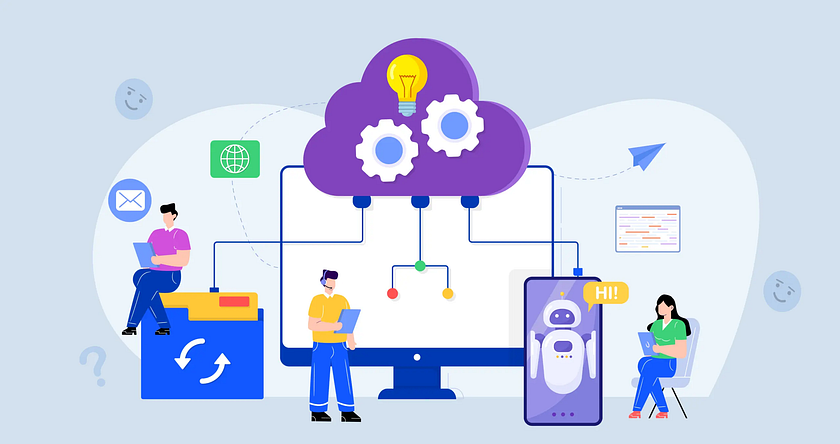How AI-Powered CX Platforms Are Transforming Customer Experience

Introduction
In today’s business world, customers expect more than just good products — they want smooth, personalized, and meaningful experiences. Companies that fail to meet these expectations risk losing customers to competitors who do it better. That’s where AI-powered Customer Experience (CX) management platforms come into play.
Artificial Intelligence (AI) is no longer a futuristic concept; it’s now the backbone of how brands understand, engage, and serve their customers. These intelligent platforms are changing how companies deliver support, predict needs, and build relationships.
What Are AI-Powered CX Management Platforms?
AI-powered CX (Customer Experience) platforms are digital systems that use artificial intelligence, machine learning, and data analytics to manage and improve every stage of the customer journey.
Instead of relying on manual processes, these platforms analyze large volumes of customer data — from feedback, chat interactions, purchase history, and social media — to offer insights and automation that enhance customer satisfaction.
Some well-known examples include Salesforce Einstein, Zendesk AI, Genesys Cloud CX, and Freshworks Freddy AI.
How AI is Transforming Customer Experience
1. Personalization at Scale
One of AI’s greatest strengths is its ability to personalize experiences for millions of users at once.
AI-powered CX platforms analyze individual preferences, past behaviors, and buying patterns to deliver tailor-made product suggestions, personalized emails, and targeted marketing messages.
For example, an AI system might recommend a product based on what a customer viewed last week or send a discount at the perfect time to encourage a purchase.
2. Smarter and Faster Customer Support
AI chatbots and virtual assistants have become an essential part of modern CX. They can instantly handle common queries, reducing wait times and freeing human agents for complex issues.
Unlike traditional bots, today’s AI-driven systems understand context, sentiment, and intent — creating a more natural, human-like interaction.
For instance, if a customer types “I’m frustrated with my order delay,” the AI doesn’t just provide a tracking link; it detects emotion and offers a sincere apology with an estimated resolution time.
3. Predictive Insights
AI can forecast customer behavior and identify potential issues before they happen. Predictive analytics helps businesses spot churn risks, detect unhappy customers, and create retention strategies.
This means companies can act proactively — offering solutions, discounts, or follow-ups before a customer decides to leave.
4. Omnichannel Experience Management
Customers interact with brands across multiple channels — social media, email, chat, phone, and apps. AI-powered CX platforms connect all these touchpoints, creating a unified customer view.
This helps businesses deliver consistent service regardless of where the customer engages, improving satisfaction and loyalty.
5. Real-Time Feedback and Sentiment Analysis
AI tools can monitor customer sentiment across platforms in real time. Whether it’s a tweet, review, or chat message, AI can instantly gauge tone and mood.
This allows companies to take immediate action when negative feedback appears and recognize positive sentiment to build stronger brand advocacy.
Benefits of AI-Powered CX Platforms
- Increased Efficiency: Automation reduces manual workload and speeds up response times.
- Better Decision-Making: Data-driven insights lead to smarter business strategies.
- Improved Customer Retention: Personalization and proactive engagement keep customers coming back.
- Cost Savings: Fewer repetitive tasks and better resource allocation reduce operational costs.
- Enhanced Brand Reputation: Consistent and empathetic service builds long-term trust.
Challenges to Consider
While AI offers immense potential, businesses must address certain challenges:
- Ensuring data privacy and compliance with regulations like GDPR.
- Maintaining a human touch — AI should assist, not replace, empathy-driven communication.
- Investing in training and integration so teams can use AI tools effectively.
Balancing automation with human interaction is the key to sustainable CX success.
Conclusion
AI-powered CX management platforms are reshaping the customer experience landscape. They empower businesses to understand customers better, respond faster, and deliver more meaningful interactions.
The future of customer experience will not be purely human or purely artificial — it will be a blend of intelligent automation and genuine empathy.
Companies that embrace this balance will not only satisfy their customers but also earn their long-term loyalty.


Comments
Post a Comment